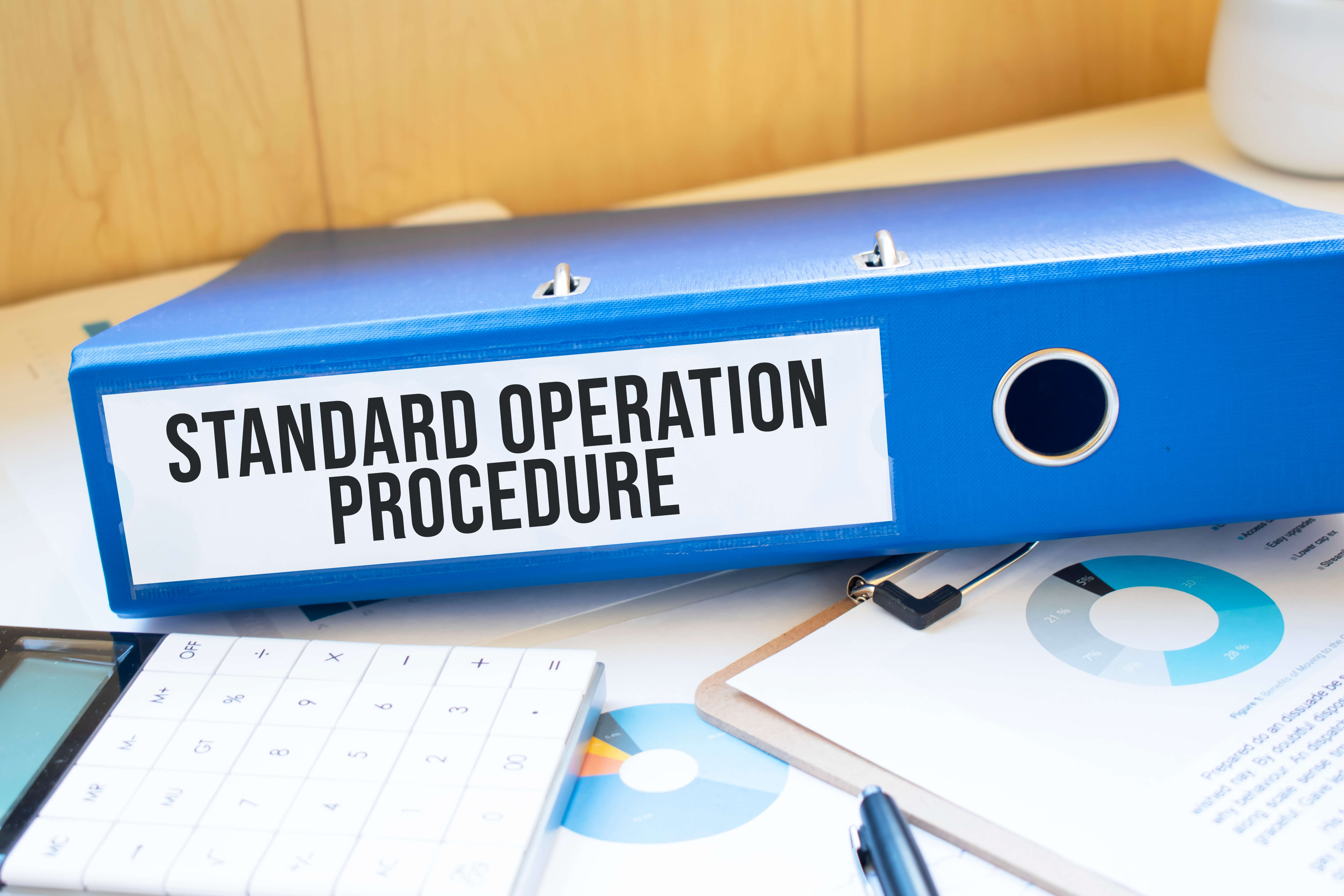Often when we talk about employee turnover and burnout, we don't think about managers. But as an employer, you are responsible for all your employees no matter what their job role is. This includes your middle managers or line managers.
Often we rely on managers to identify when another employee is struggling with their workload or mental health to reduce burnout. They can sometimes be part of the solution to help other employees improve. But how do we help line managers and middle managers from experiencing burnout?
In this article, we are going to explore what a middle manager is, what they do, and what you as an employer can do to help prevent middle management burnout. If you need immediate support or advice, get in touch with one of our HR or Health and Safety experts on 0800 470 2818.


What is middle management?
Middle management comprises the job roles that bridge the gap between your employees and upper management of your business.
A middle management role typically has some kind of leadership element and has direct reports They then report the team's progress to the senior management of the business.
Individuals within these roles will help support and challenge those in their cohort to grow professionally and manage the team’s day to day tasks and responsibilities.
What do middle managers do?
As we've mentioned, middle managers have teams within companies that report to them, and they are tasked with managing their daily tasks. The following will probably change from company to company, as it can often depend on the team, organisational culture or business needs. But some of a manager’s main duties can include:
Communications about company updates
It's common practice for organisations to want important information to be passed down the 'chain of command' to the relevant managers. This means that middle managers or line managers play a pivotal role in ensuring that information is passed on to their teams.
This type of communication could include anything from company updates, your vision for the business, organisational changes, and general housekeeping.


Setting up team goals
Although strategic decisions and overall KPIs tend to be the responsibility of senior managerial roles, middle managers are often tasked with monitoring their employees’ performance. This may involve breaking down bigger KPIs to fit individual job roles.
Managers will also help the team with their goals, and in some cases provide ways for the team to focus and improve. This could include streamlining processes or encouraging the team to take a different approach. For example, if a middle manager looks after a sales team they might decide to adjust the approach they make to phone calls to help achieve their goals.
Provide feedback to employees
Middle managers will decide how they are going to provide their teams with feedback on their work. This could be in one-to-ones or in a written format on a regular basis. This feedback will help them to monitor their team's performance and identify areas of focus that can be improved.

Support employee growth
All managers want to see their teams grow and become more knowledgeable in their jobs and specialist areas. Line managers often use the information shared in their regular feedback meetings to create a plan that helps their team improve.
This can include job satisfaction, supporting them with career advancement, training programs or helping them learn new skills internally.
Oversee the daily operations of the team
As the middle manager is often the leader of the team, they oversee the running and success of the team on a daily basis. Depending on what the team requires this could include setting individual tasks or having their team report to them on a weekly basis on the tasks they are planning to complete in the week.
They will also offer support to their team members that have a particularly hectic week.
Why can middle management become stressful?
As we've established, middle managers and line managers are responsible for managing their teams. This brings about many challenges. But that isn't all, we've collected some of the most common reasons middle managers and line managers are becoming stressed or experiencing manager, job stress, emotional exhaustion, and manager burnout.
Lack of personal growth
In some cases, many middle managers feel stuck in their roles as they don't have the time or opportunity to take on more responsibility or development in leadership.
This can be demotivating for new managers and cause them to try and complete their usual administrative tasks and leadership training or additional training. This will cause them to become physically exhausted, and lead to middle manager burnout.
Swamped in work
This links to the above point. As middle managers or line managers help everyone in their cohort they can end up swamped with their daily tasks and other tasks from their team especially if the work is needed on a deadline.
This can cause your managers to become more exhausted and stressed that they might not meet their deadlines.
Not only this but if they don't feel like they can regularly leave their desks throughout the day, it is a quick way for them to become burnt out.

How can you avoid burnout in your middle management?
There are a few ways that you can help all your managers, not just the middle managers. We've put together some of the ways you can help below.
Help manage workloads
You can help your managers avoid burnout by helping them manage their workloads. You can put some measures in place to stop your managers and teams from becoming overwhelmed.
This could be done by working with the managers to hire additional team members to their team, this will take some of the pressure off them and also their team members who are becoming overwhelmed with work.
You could implement a task submission system for all teams, where the person requesting the work can put a deadline or a priority status.
This will help the middle managers to organise their team and encourage them to work together to complete the work, without your teams becoming stressed.

Get an EAP
An employee assistance program (EAP) can help provide your managers with some of the things they are struggling through, such as their mental health and the stresses that come along with the middle manager's job or stresses from their personal life.
EAPs are there for all your employees, regardless of what their role is, and keep anything that is discussed in meetings or any services that are used remain confidential.
Work with your managers to set expectations
By speaking with your middle managers you will be able to set realistic expectations for them and their teams.
You could consider what kind of turnaround you can get on particular pieces of work. For example, if they know a job will take them a couple of hours or days to complete, keep that in mind when your teams are assigning work to that manager's team.
Here you could also speak to your managers about your business objectives and how they can be translated into the team's individual goals. This will help your managers be part of the decision-making process and equips managers to have better control of their teams.
Help provide a mentor or coach to help with growth
Another way you can help your employees is by utilising a member of upper management to be their coach, this will help them learn new management skills for their professional growth and development.
This will help them grow in confidence, and improve their self-awareness and overall wellbeing.
Encourage managers to take breaks
It's important to ensure that your managers are taking breaks throughout the day and that they aren't taking work home with them. This will help them create a better work-life balance, this will help to avoid the risk of burnout as they won't be exhausted from the day before and will be motivated.
Have a wellbeing policy
Ensure you have a wellbeing policy in place in the organisation that is communicated and signposted to all employees, including middle managers.

Tips on Avoiding Employee Burnout
If not managed properly, burnout can have a significant impact on employees wellbeing, resulting in physical, intellectual, emotional or behavioural issues. In 2017/18, 15.4 million working days were lost due to work-related stress.
So how can employers avoid this arising in their organisation?
Make sure staff take their breaks
Remind employees that they’re entitled to take a break from their work and take steps to make sure they are doing this. For example, you could prohibit staff from eating at their desks to stop them from working through lunch.
Do not permit excessive levels of overtime
Employees need time away from work to recuperate and refresh themselves. Whilst overtime can be a useful tool in getting extra work done, you should not expect them to regularly have to work overtime in order to finish their job demands or everyday tasks outside of normal hours.
This can help employees to maintain a balanced work and home life and better manage any commitments outside of work, such as raising a young family.

Regularly evaluate employee performance
Identify areas where your employees feel they are struggling with workloads or workplace pressures and consider making changes to reduce stress there.
Train managers to look out for signs of burnout, stress, and maintain strong communication levels
This can include irritableness, fall in performance, visible fatigue, increased levels of stress management because of sensitivity or deliberate isolation. Employees should be encouraged to speak to their managers about any issues they may be having in the workplace.

Have a zero-tolerance for bullying
Bullying can add greatly to stresses of the normal working day and make it much harder for your employees to do their job. Make sure all employees, including managers, are aware of the consequences for any issues of bullying, harassment or discrimination.
Create and maintain a wellbeing policy
This can outline any support that your company offers to employees who are suffering from workplace stress due to work-related or personal factors.

Get expert advice
If you need help supporting your middle managers and other managers to avoid the signs of burnout, get in touch with one of our experts. We have a plethora of free downloads including wellbeing policies and mental health policies that can go a long way in helping your employees.
Croner has a team of award-winning HR and health and safety consultants who are specialists in their field. We've been helping businesses for over 80 years and our advice line is open 365 days a year, 24 hours a day. Why not speak to a Croner expert on 0800 470 2818.
Related resources
Categories
- Business Advice
- Contracts & Documentation
- Culture & Performance
- Disciplinary & Grievances
- Dismissals & Conduct
- Employee Conduct
- Employment Law
- End of Contract
- Equality & Discrimination
- Health & Safety
- Hiring & Managing
- Leave & Absence
- Managing Health & Safety
- Moving
- Occupational Health
- Pay & Benefits
- Recruitment
- Risk & Welfare



